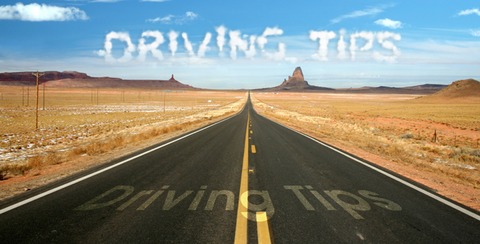
Contents
Driving Tips
Cellular telephone while driving cause more accidents:
In general, driver distraction is one of the leading causes of traffic accidents. Using and talking on a cellular phone requires a large amount of attention and can be a contributing factor to accidents. However, using a cellular telephone is one of many distractions a driver faces. In other words, concern about driver distraction should not be limited to cellular telephones.
skills does a driver use?
Skills needed by a driver include:
To use a cellular telephone, the operator also needs all of these skills:
- Visual – locating correct buttons, scanning screen
- Auditory – listening to conversation
- Bio mechanical – pressing buttons, holding phone
- Cognitive – engaging in conversation
Common causes of driver distraction:
It is not known how much distraction a driver can “handle” before he or she loses focus on the road. We probably have all seen examples of activities that can distract drivers such as:
- Eating/Drinking/Smoking
- Reading (including looking at a map, book, etc.)
- Applying makeup/shaving
- Adjusting radio/cassette/CD/MP3, DVD players, climate, or other controls
- Adjusting features such as pedals or steering wheel
- Watching a person, object or event outside the vehicle
- Moving objects in the vehicle (food containers, insects, etc.)
- Talking with other people, especially if the driver turns to those in the back seat of the car
- Dialing and talking or texting on a cellular telephone, and
- Using CB radio or other communication devices
Newer in-vehicle technologies such as those below will only add to the demands on a driver:
- Advanced features of cellular phones and other wireless communication devices including Internet, e-mail, fax, etc. (mobile office)
- Other wireless devices such as laptop computers, palm pilots, etc.
- In-vehicle navigation systems (GPS systems, etc.), and
- Night vision systems
‘good’ driving tips:
Most importantly, pay attention. Accidents occur because drivers were not aware of the conditions around them. Be aware and know that distractions can come from many sources at any time.
In general:
- Be well rested.

- Do not consume alcohol, drugs, medications or other substances that may affect driving.
- Try not to think about personal or business matters, especially those that are upsetting.
- Do not use cellular phones or other devices if at all possible (including hands free devices).
Before leaving:
- Stow belongings properly.
- Adjust seat, mirrors, steering wheel, climate controls, etc.
- Select a radio station or have the tape/CD in the player.
- Plan your route, check the map or read the directions.
While driving:
- Pay attention.
- Keep distractions to a minimum (eating, drinking, smoking, adjustment to radio, cell phone use, etc.).
- Be aware of changing driving conditions such as the volume of traffic, weather, etc.
- Do not reach for items that have fallen or shifted unless absolutely necessary and can be done safely.
- Do not write notes while driving and/or talking.
If you must use the phone while the car is in motion:
DO
- Avoid using the phone or device whenever possible (see below about laws banning devices).
- Have a voice mail option and allow it to pick up messages.
- Pull over to a safe location to take the call. Tell your caller you will phone them back after you have parked.
- Have a passenger answer or place the call.
- If allowed and if you must answer the phone while driving, keep the phone within easy reach.
- Use a hands free device (e.g., voice activation) but remember the conversation itself is still a distraction.
- Pre-program commonly used numbers.
- Pause conversations if driving conditions become hazardous (e.g., rain, snow, construction, heavy traffic).
DO NOT
- Do not participate in very emotional or stressful conversations while driving.
- Do not take notes or look up information while driving. Ask the person on the other end to make notes for you if necessary.
- Do not use the text feature on your phone while driving.
- Do not make gestures while talking and driving.
